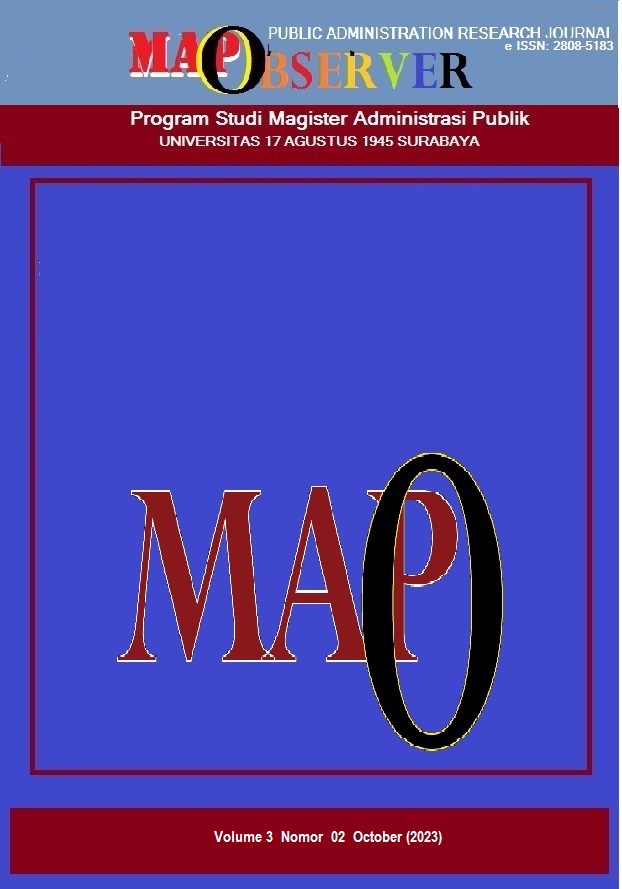COMMUNITY DEVELOPMENT THROUGH SOCIAL ASSISTANCE IN THE DISTRICT. MEDAN DENAI, MEDAN CITY
DOI:
https://doi.org/10.30996/mapo.v3i02.9588Keywords:
Community development, social assistanceAbstract
Community development, which seeks to increase participation and a sense of participation and belonging together in the program to be implemented, must also contain elements of community empowerment. Empowerment refers to the ability of people, especially vulnerable or weak groups, to have access to productive sources that enable them to increase their income and obtain the goods and services they need and then participate in the development process and decisions that affect their environment. or themselves. In reality, this process often does not appear automatically, but rather grows and develops based on the interaction of local communities with external parties or social workers who work based on charitable encouragement or a professional perspective. These social workers act as social assistants. Who is present as an agent of change who is involved in helping solve the problems they face. Social assistance can be interpreted as a dynamic interaction between poor groups and social workers to jointly face various or various challenges. Community development is also interpreted as a strategy of choice in the context of alternative development, while the concept of alternative development in development discourse is then a reaction to the weaknesses of the development model, also overcoming the problem of poverty, preserving the environment and solving strange social problems that oppress society.
Downloads
References
Allan, D. E. & Dorothy, G. J. (1976). Community and Community Development. Hague : Mounton & Co.
Alma, B. (2000). Kewirausahaan. Bandung : ALFABETA
Raharjo Adisasmita, 2006, Pembangunan Pedesaan dan Perkotaan, Yogyakarta: Graha Ilmu.
Soelaiman, M.Munandar, 1998, Dinamika Masyarakat Transisi, Mencari Alternatif Teori Sosiologi dan Arah, Yogyakarta: Aditya Media.
Zamhariri, 2008, Pengembangan Masyarakat: Perspektif Pemberdayaan dan Pembangunan, Volume 4, Nomor 1, Juni.
Zubaedi, 2013, pengembangan masyarakat: wacana dan praktik, Jakarta: kencana Prenada media group.
Downloads
Published
How to Cite
Issue
Section
License
-
The MAP Observer journal allows authors to retain the copyright of their papers without limitation. Authors may grant publishers non-exclusive publishing rights to publish articles. Granting first publishing rights to publishers also qualifies as unlimited copyright (because there are no restrictions imposed by publishers on author copyright).
-
Formal legal provisions for access to digital articles from these electronic journals are subject to the terms of the Creative Commons Attribution-ShareAlike (CC BY-SA) license, which means MAPO Observer Journal has the right to store, change formats, maintain in a database, maintain and publish articles without asking. permission from the Author as long as the Author's name is the owner of the Copyright.
-
Printed manuscripts and electronic publications are open access for educational, research and library purposes. Apart from these purposes, the editorial board is not responsible for violations of copyright law.









